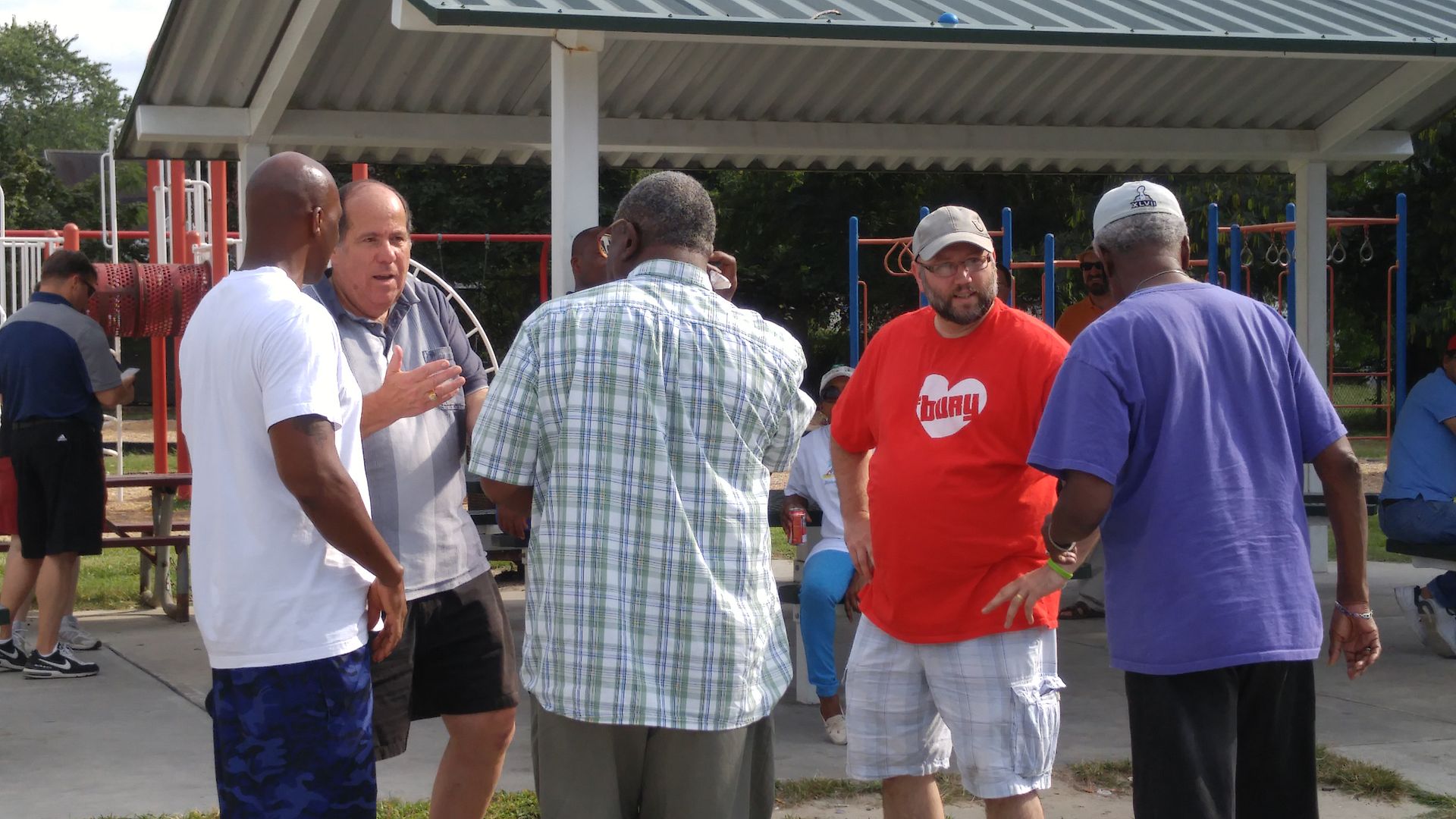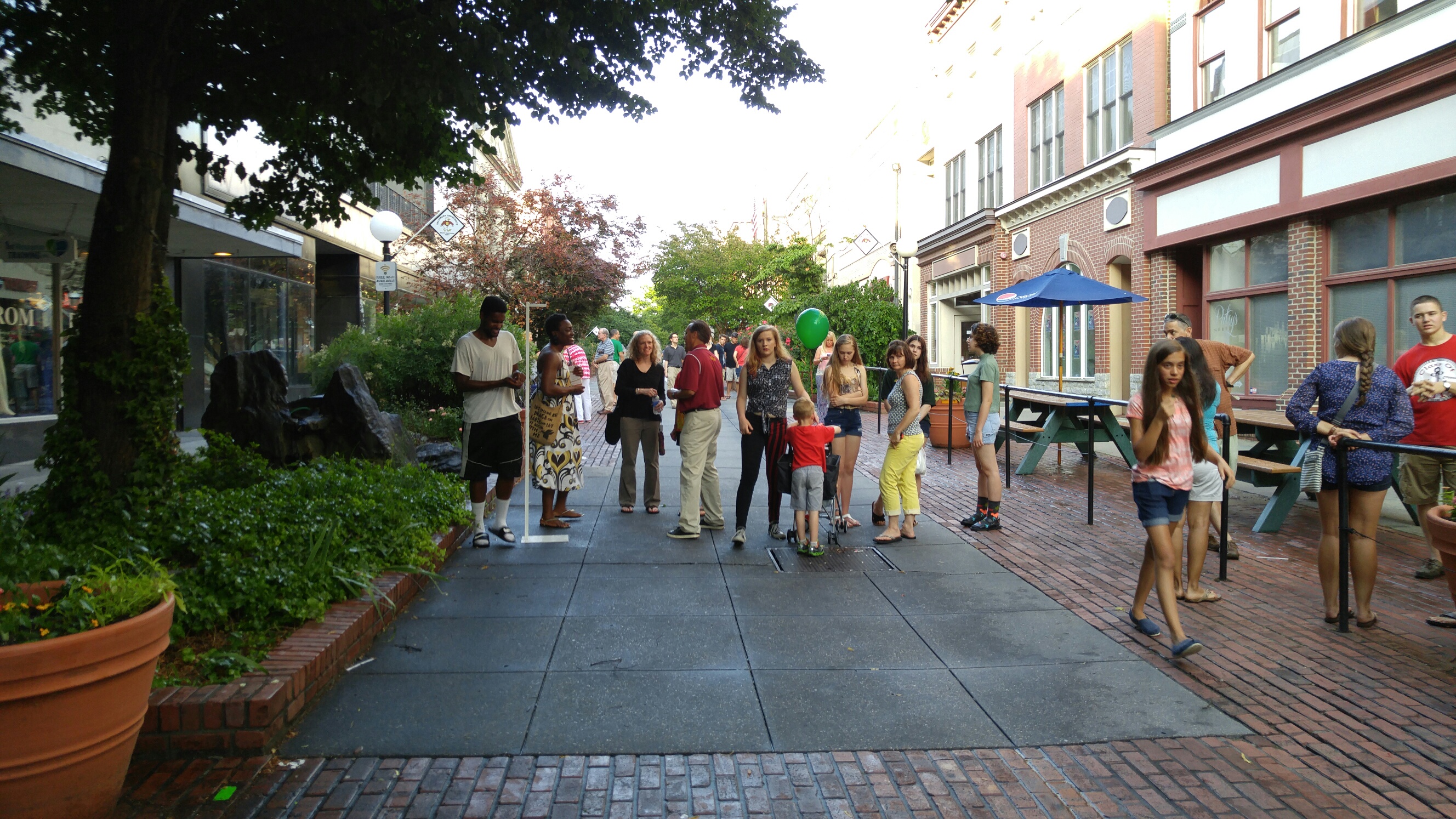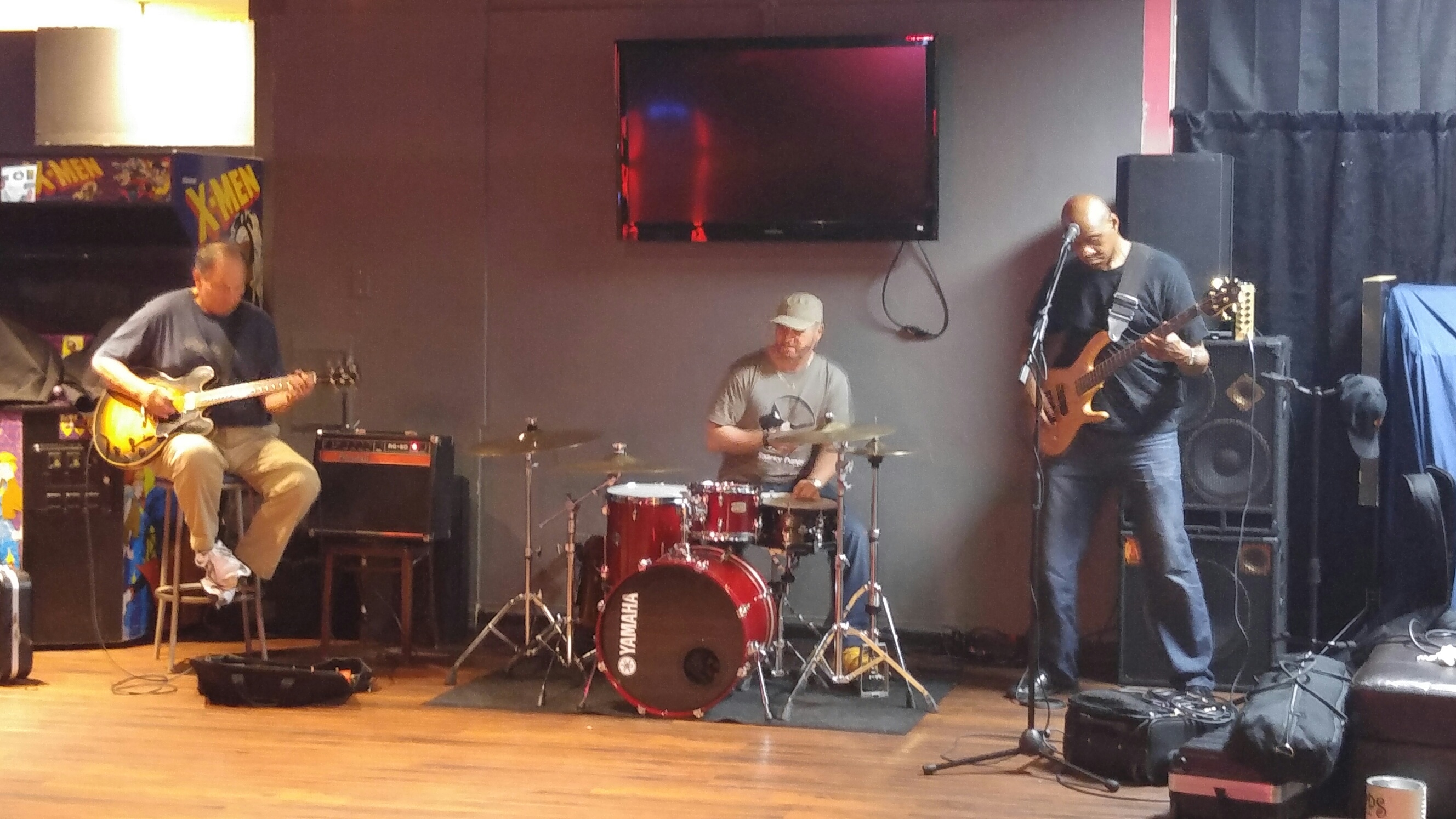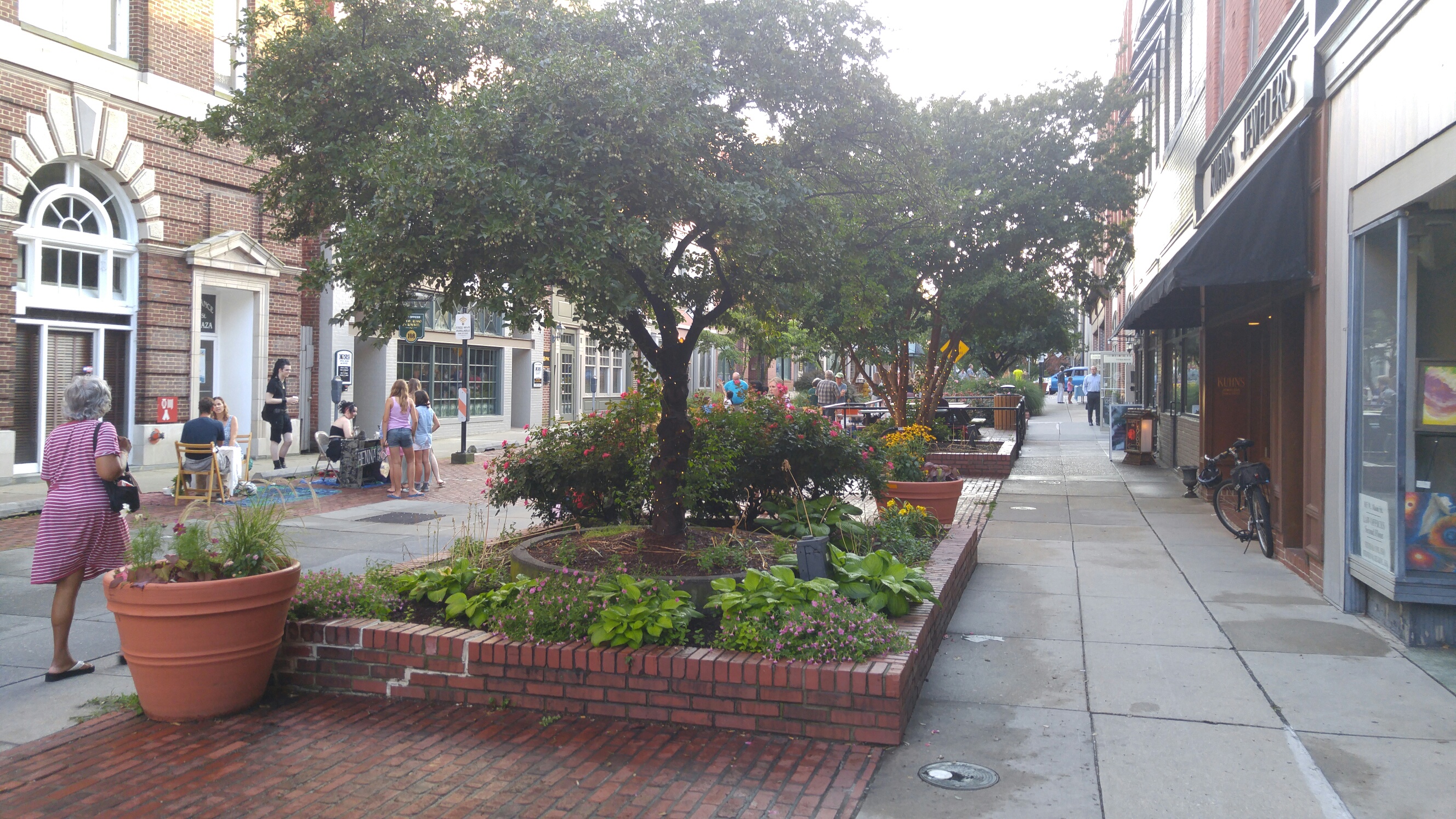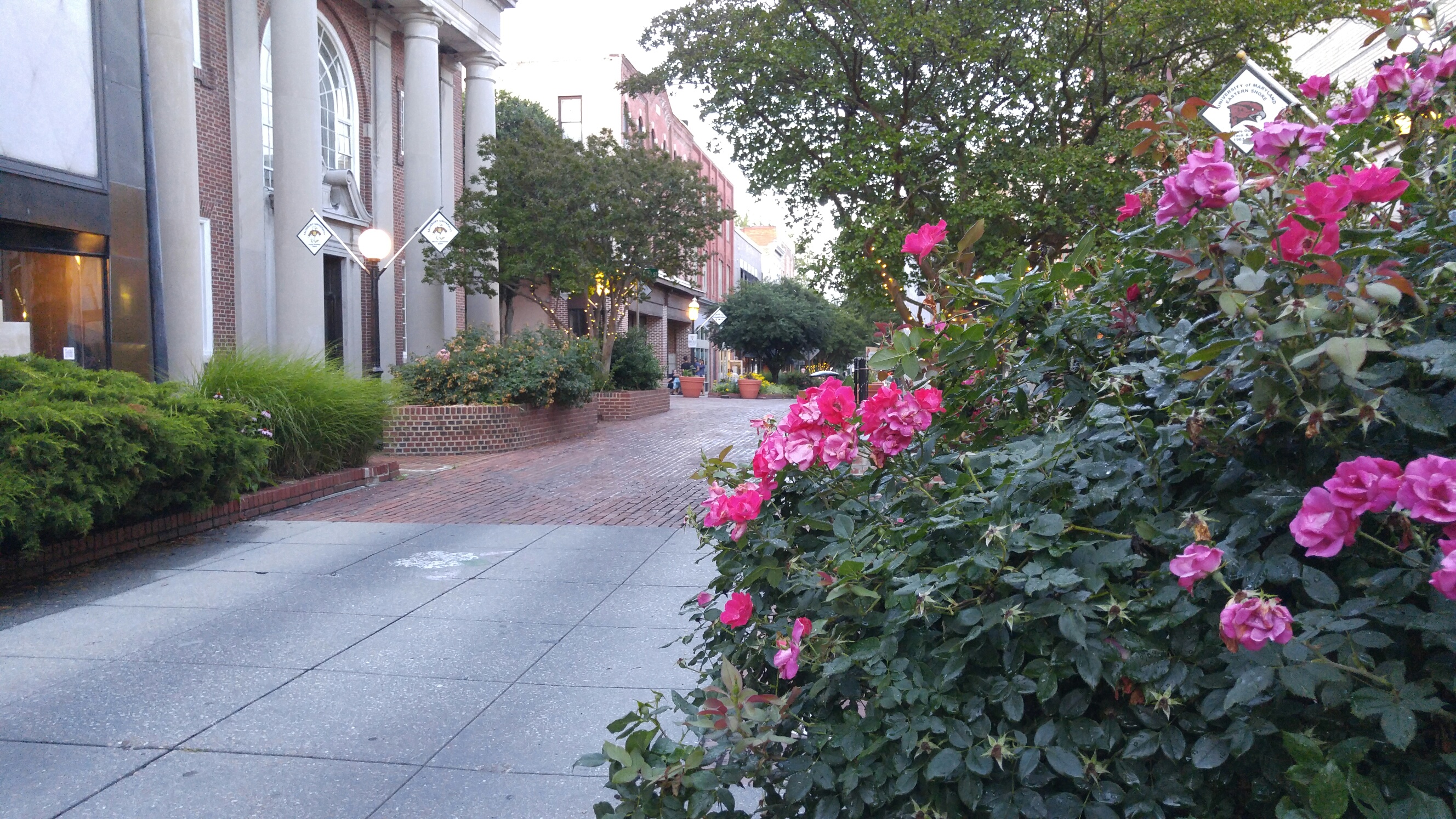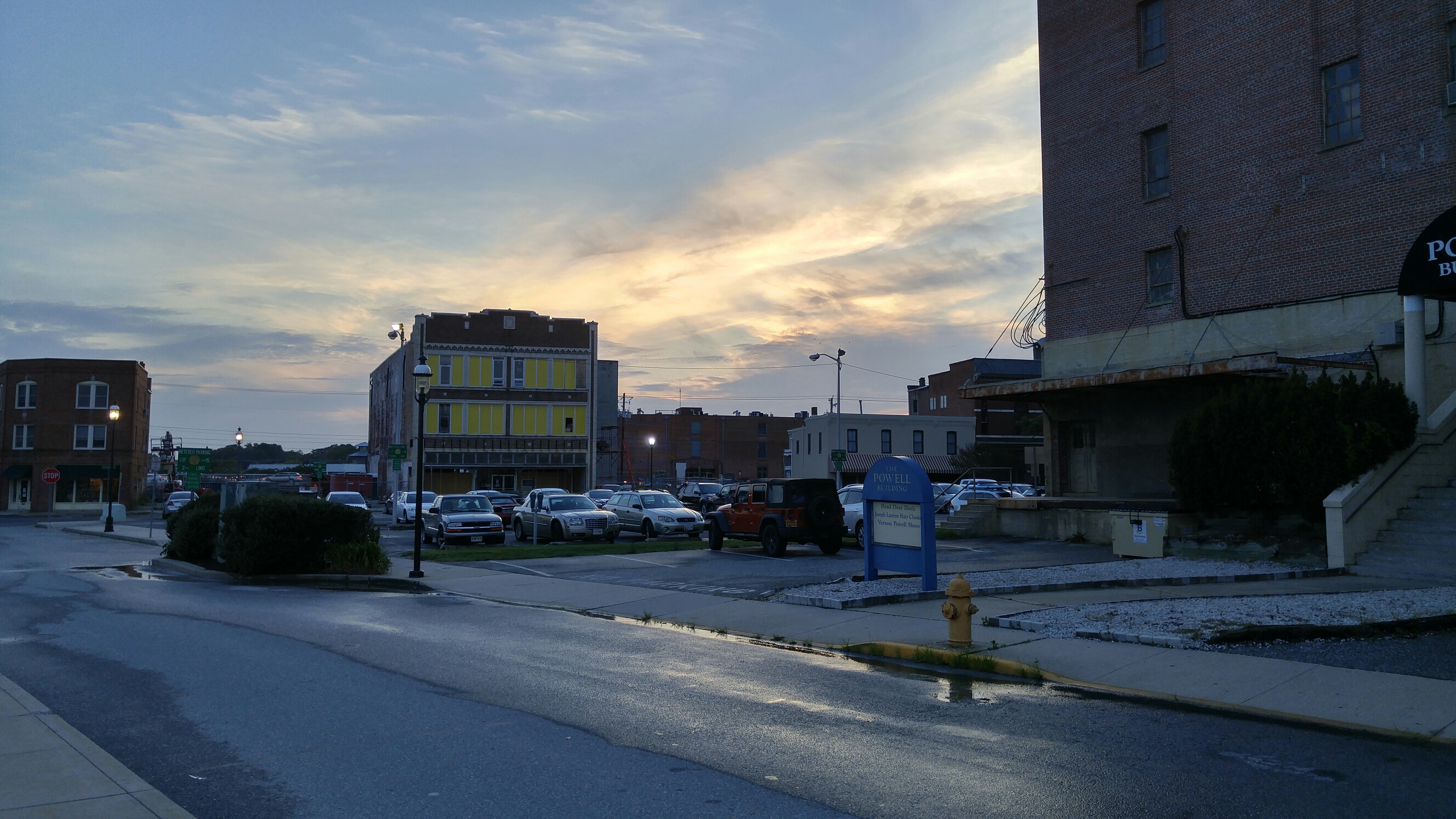It was via a roundabout route, but we finally heard from the man who’s presumptively Salisbury’s next mayor, Jake Day. Because Jake had another place to be this evening – the Salisbury City Council meeting that he ran as their president – we had a succession of speakers to fill the time. It was interesting to note that several of these speakers dropped in as our meeting was going on, which told me they were looking forward to hearing what Jake had to say.
But we began as we always do, with the Lord’s Prayer, Pledge of Allegiance, and introduction of distinguished guests, all done by our first vice-president Muir Boda, who filled in for our under-the-weather president Shawn Jester. We then did the swearing in of new second vice-president Dave Snyder, who pledged to be “a very good listener” and work to recruit 100 new GOP voters and new club members.
I took a little time to thank people for helping out at the Wicomico County Fair, as did Dave. My one suggestion was to perhaps look into a spot for outside next year.
In a Central Committee report, Mark McIver called the elected school board “one of the biggest things on our plate.” He added there was a new initiative called “We Decide” that was a non-partisan group to back an all-elected school board, and related the urging from County Council that we should participate in these hearings. It was going to be “an 8-week push.”
Mark Edney added his two cents, informing us that there will be an initiative this fall to address the issue of vacancies in the General Assembly through the state party’s bylaws. Noting the issues faced by Carroll County, Edney intoned that it was “important that we get this right” because members of both parties in the General Assembly sought to take away the power local Central Committees had to choose successors.
Joe Ollinger updated us on the Crab Feast, which had most of the items in place except a silent auction coordinator. It’s still on schedule for September 12 at Schumaker Park.
Speaking of food, Muir Boda announced his own, more modest event this Saturday at Doverdale Park. His community barbecue was slated for 3-5 p.m. but volunteers could show up at 2:00. Boda remarked he had three opponents in the election, so getting out the vote was paramount.
He also commented that the proposed city curfew was a “big issue” but questioned whether it would be enforceable given current resources and the spread-out geography of Salisbury. By itself, a curfew “won’t solve youth crime,” Muir said.
Senator Addie Eckardt, who had arrived after we began, spoke briefly about her upcoming annual bike ride through the district that will cover Wicomico County on Thursday. She also praised Governor Hogan, who has “put a great team together.” It would help government become, as she put it, more responsive and cost-effective.
Delegate Christopher Adams remarked about his attendance at the defund Planned Parenthood rally in Easton as well as a stop last week at Wallops Island in Virginia. They were expecting to resume launches at the pad damaged in an explosion last fall by March, he said.
Looking forward, though, he wanted to concentrate on regulatory reform, as some needed changes could be done more easily through that avenue than through the legislative process.
Fellow Delegate Johnny Mautz predicted “a really busy session” next year but expressed his disappointment in getting a low 25% score from the League of Conservation Voters. I looked up the floor votes they scored: two were anti-fracking measures and the other was the “repeal” of the rain tax sponsored by Mike Miller. So pro-business was not going to meet pro-environmnet with the LCV.
Bunky Luffman stood in for Delegate Carl Anderton, commenting to an earlier point made about regulation by bringing up the sprinkler mandate that is halting construction locally. One local developer lost a builder who refused to build more dwellings – they weren’t able to make money with the mandate and additional costs.
Most of the legislators had come late to hear Jake Day, who spoke for about 15 minutes and answered questions for another 20. Apologizing both for being late and a lack of sleep as a new dad, Day told us he was “very excited” about becoming mayor. As a Council member he was pursuing a pro-business agenda, but noted “I have found a roadblock in the current administration.” Like the state of Maryland, his effort would be to attract business: “I want us to be competitive,” said Day, citing Delaware under Jack Markell as a “more friendly and welcoming environment.” Perdue’s decision to move some of its corporate operations to Delaware “sent a message,” said Jake. “The economy will be first and foremost on my mind each day.” His idea was to grow jobs “locally and organically,”
One area he saw as a job creator was downtown, for which revitalization was important to Jake. It’s “part of the renaissance” of Salisbury, said Day. He criticized the “lack of active leadership from the top” and sought a City Council that was cordial, but aggressive. He also announced the intention to continue divesting the city’s surface parking lots, believing successful downtowns do better with infill rather than surface parking.
Crime was another top issue. Day observed that criminal activity was starting at a younger and younger age, so the city could have to “pick up where the parents left off.”
It was an enlightening address, but the questions were good, too. The first one out of the chute was about the “rain tax.” Jake disagreed with the state mandate, but believed it was necessary for a city which had ignored the issue for over a century. He was willing, though, to reduce property tax rates and scrap the city’s inventory tax to help even things out.
And when I asked why the city couldn’t use its water and sewer fund surplus, Day said the surplus was being depleted too quickly. Basically the relief would be short-term at best.
Corollary to that initial question was a discussion about the closing of Labinal, which will cost the city hundreds of jobs. While the popular opinion was that the state’s difficult business climate drove them away, Day said the answer was more simple: Texas (and Mexico) were closer to their main customer base, and Salisbury mainly served military clients whose contracts were winding down.
A second concern was the issue with fire service. Rather than the “big mistake” of giving ultimatums through the media, Jake was working closely with county officials in coming up with a long-term solution. He conceded it probably wouldn’t be all the city wanted, but noted that he and County Executive Bob Culver were “working well together.” The key was making things more fair in a way that doesn’t alienate non-city residents.
Our wastewater treatment plant was the subject of a question. Calling its saga “a scar on Salisbury’s history,” Day announced the next phase of renovations would begin in October. Bunky Luffman, who formerly worked at the plant, pointed out it had reduced the amounts of nitrogen and phosphorou, but not enough to meet more stringent state standards that changed midstream.
A final questioner tested Day on his “number one challenge – is my (business) location safe?” Crime was a concern for local businesses, and “a lot of solutions to our challenges are economic,” Jake said. He vowed to show leadership and compile more data on the current conditions.
We finally let Jake go, so that Boda could announce our next meeting would be September 28. Hopefully it will be as chock-full of information as this one was.
